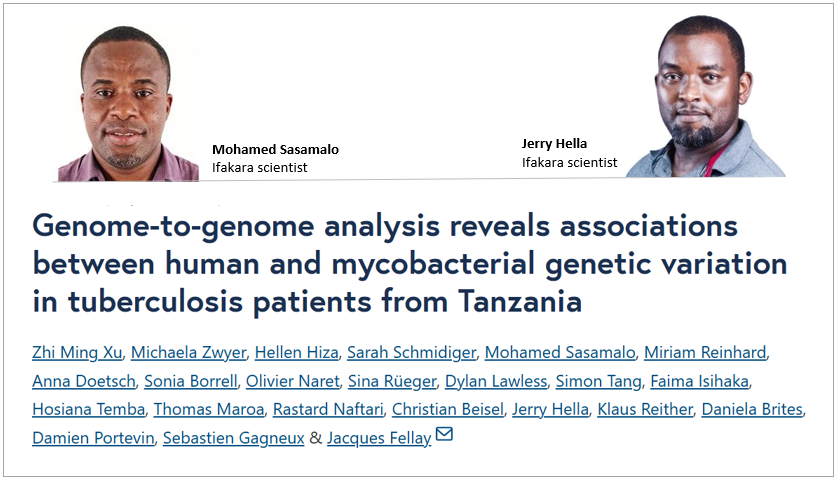
UNCOVERED: The genetic battle between humans and TB bacteria

A recent study in Tanzania has uncovered fresh insights on the genetic battle between humans and mycobacterium tuberculosis (M.tb), the bacterium responsible for tuberculosis (TB). Published on BMC Medical Genomics, the study suggests that interactions between human and bacterial genes could help explain why TB remains so difficult to control.
Unlike earlier studies that examined human or bacterial genetics separately, this research looked at both together to understand how they influence each another. The study was led by an international team of scientists from Switzerland and Tanzania.
Scientists from the Ifakara Health Institute who contributed to this study include: Mohamed Sasamalo, Faima Isihaka, Hosiana Temba, Thomas Maroa, Rastard Naftari, and Jerry Hella.
The team analyzed paired human and bacterial DNA from 1,000 adult TB patients and were able to pinpoint where human and bacterial genes interact—and sometimes clash—in ways that influence the disease risk and severity.
Key genetic links discovered
Using a “genome-to-genome” approach, the team discovered two major human–bacteria genetic links:
- A human gene variant involved in regulating cell death, PRDM15, was linked to a bacterial gene variant in Rv2348c, which produces a protein that activates immune cells. This suggests the bacteria may interact with host cell-death pathways to survive.
- Another human variant, located between TIMM21 (which affects mitochondria) and FBXO15 (which helps regulate antigen processing), was connected to a bacterial gene variant in FixA, whose function is not well understood. This human variant also appeared linked to TB severity in patients.
The researchers also noted that rare bacterial changes may still outsmart immune defenses by corresponding with the genetic makeup of people’s immune systems.
“We observed that a group of M.tb T cell epitope variants were significantly associated with HLA-DRB1 variation,” the team said. They added that “although these variants are rare, certain epitopes may still be under immune selective pressure,” suggesting the bacteria are adapting to the body’s defenses.
Hope for better TB control
Experts say the findings reveal “previously unknown points of genetic conflict” between humans and TB bacteria, showing how the disease may evolve to evade the immune system and persist in populations. Understanding these interactions could help explain why TB continues to infect millions each year, despite decades of medical advances.
Furthermore, the scientists add, that this new knowledge offers hope for more effective TB control strategies, potentially paving the way for treatments that target these genetic interactions directly.
Collaborators in the study
This study, supported by the Swiss National Science Foundation and the European Research Council, was a collaborative effort involving scientists from EPFL - Swiss Federal Technology Institute of Lausanne, Swiss Tropical and Public Health Institute, Ifakara Health Institute, ETH Zurich, and Lausanne University Hospital and University of Lausanne.
Read the publication here.
